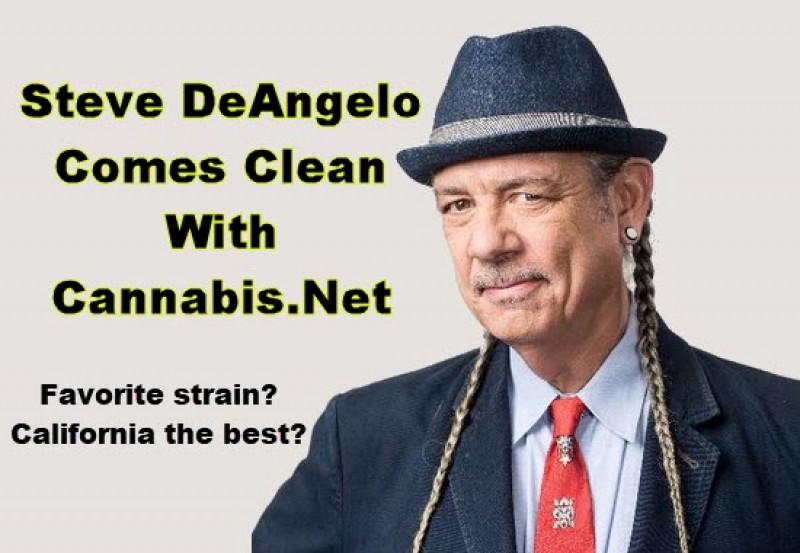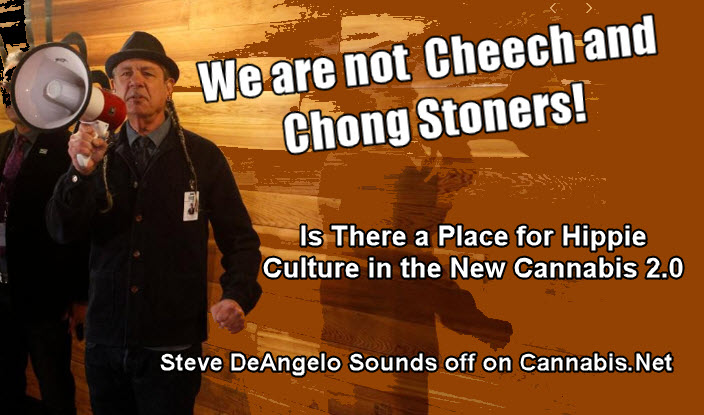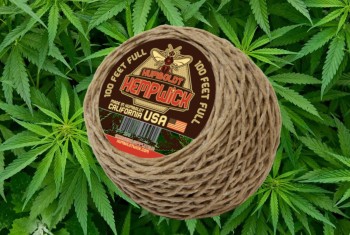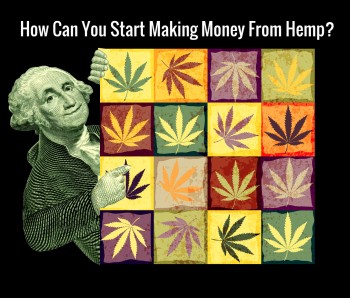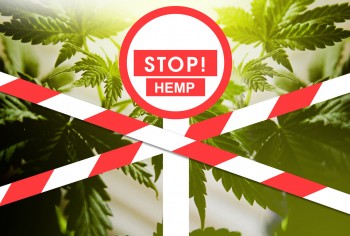To listen to the full Steve DeAngelo interview you can click the YouTube screen below.
Steve DeAngelo Opens Up with Cannabis.Net about Weed, Laws, and Harborside from CannabisNet on Vimeo.
00:00 Steve: Oh, yeah, well, we're running all kinds of specials and every holiday weekend is big for us.
00:05 Curt: Excellent, excellent. Well, welcome to cannabis.net. It's a pleasure to have you on in the part of our interview series. Give us an update on what you are up. Let's start with this weekend. How's life going? And then I got some questions for you.
00:19 Steve: Well, life is going beautifully. It really looks like we're gonna get a sunny weekend here in the Bay Area, which is unusual, and I am really looking forward to a few days off.
00:30 Curt: Gotcha. Now, when you say "off," do you actually get time off? Do you turn off the phone or do you mean you actually get to be with friends and family but you're always checking the phone?
00:39 Steve: Well, I think I will actually get a couple of days off over the weekend. The Fourth of July is one of the only four days in the year that we actually shut our entire operations down.
00:52 Curt: Gotcha.
00:53 Steve: So, with the exception of our cultivation crew who's working on plants right now, they will have to keep on working them. Everybody else in the company is gonna take a break. So, there wouldn't be anybody for me to call even if I wanted to.
01:07 Curt: Excellent. Well, that's always good to take break. I'm doing the same on the East Coast. So, let me jump in with a MRSA question for you. For those listeners and readers that don't know the California Movement is going great except in the Medical Marijuana Regulation and Safety Act. There is a little interjection about a middle man that has been very proactive about pointing out. Where does it stand now and could you explain a little bit where we are at on the legislation?
01:35 Steve: Sure. Well, let me give you a little context and then I'll give of a piece of good news. The context is that the statewide medical cannabis regulations on which have been finely passed by the California legislature 20 years after the voters told them to do so. They contained a provision which required the use of a mandatory distributor at each step of the supply chain. So, in other words, a grower could only provide cannabis to a distributor and then that distributor had to provide it to everybody else in the supply chain. And the effect of that was going to double, triple, possibly quadruple the price of cannabis because there are several steps in the supply chain and distributors are looking for 15 to 35% of the value of the goods at each step for supply chain.
02:32 Steve: Fortunately, after a huge public outcry, several excellent pieces of investigated journalism and really hard work on the ground by volunteers for Americans for Safe Access and by some of our paid political consultants, we were able to get those regulations modified it significantly. So, we still have the required use of a mandatory distributor but that is only for the final step in the supply chain. So, before a product goes into a retail store, it does have to go to a distributor for quality control and taxation, but that's only one step in the supply chain. So, we're counting that as a partial victory.
03:17 Curt: Excellent.
03:17 Steve: And it will hopefully keep the prices, of legal cannabis in California, affordable.
03:24 Curt: And the general vote right now in California as you have your finger on the heartbeat is still in the high 50s for the federal approval of recreational?
03:31 Steve: Yeah. We have an adult use initiative. It's on the ballot in California in November. We have been polling just that around 60%, sometimes a little bit less. And that support seems to be holding quite steady. So, we're optimistic that this campaign was gonna be successful. With that said, these things are never done deal until you actually count the votes.
04:03 Curt: Gotcha. Now, when MRSA, and AUMA pass, how does your life, Curt D'Angelo's life change six months later? Is that in Harborside doubling of volume or what is your life look like and let's say everything goes perfect on the vote?
04:19 Steve: Well, we believe there's going to be robust growth in the legal sector, in the legal cannabis industry in California for the foreseeable future, and that's being driven by all these regulatory changes. We don't know exactly what the relationship between adult use cannabis and medical cannabis will be in the state of California. We're hoping to have a unitary supply chain. So, we avoid the situation that they have in Colorado where you have shops that are divided down the middle with medical on one side and adult use on the other.
04:58 Curt: Okay, gotcha. So, but things will obviously grow and like you said the expected growth rate on all fronts with approval, not only in California but hopefully something Federally, we'll see what happens will be good news obviously for the whole sector.
05:13 Steve: Oh, yeah. It's gonna be good for the entire industry and we're on a huge growth curve right now, Harborside we have current locations, we're opening our third California location in a few months from now. It could be as long as six months from now depending on the CUP process. We're developing a 160,000 square foot manufacturing facility in Oakland and, a 47 acre cultivation facility in Monterey County. So, we are building out our team and getting ready for these new opportunities.
05:47 Curt: Going "small ball", we like to say, I see, just taking a [05:51] ____ small approach.
[chuckle]
05:52 Curt: Yes, but perfect lead in to actually segue to my question. I wanna go over ArcView and some of our listeners and readers might not know you're the Co-Founder of the largest investment group generally in the industry. Cannibis.net obviously a... Is a very hot start up. I am also on a personal note, an angel investor in a couple of non-cannabis businesses as well as full in cannabis.net. We're in a third round of funding so I've sat on both sides of the table. I've been the guy asking for money and I've been the guy giving money. What do you tell investors that come to you and say hey look I have half a million, five million, 20 million and I want to get into this? Where do you... What niche would... What in this niche do you like and without naming companies where do you point them?
06:39 Steve: Well, it depends on what hat I'm wearing. If I'm wearing my Harborside hat I point them to one of our investments and if I'm wearing my Flourish hat then I generally... Excuse me. When I'm wearing my Harborside hat or my Flourish hat I direct people to those investments. When I'm wearing my ArcView hat, I really... You refer investors to the ArcView process which is this really unique process that we've developed. ArcView does not itself make any investments. We are not a fund. We don't even tell our investors what they should or should not invest in. We're basically a matchmaking service and what we do is we bring investors together with entrepreneurs and create environments in which they can get to know each other and have business discussions and hopefully reach deals so that happens online, so we have weekly webinars and it also happens in our conferences, so the great thing about the ArcView process is that it brings literally hundreds of investors together. They can compare notes with each other. They can share due diligence duties. They can pool their investments and that peer environment, that environment of robust collaboration, we found is something that's very attractive to investors and something that's helped us put 72 million dollars into the industry in the last five years.
08:13 Curt: Alright, well let me switch hats on you. I asked you an investor-based question. I am a young entrepreneur. Cannabis.net has reviewed and done stories on about 30 startups, kinda giving them some publicity. What are your three bullet points or advice to a young cannabis-based startup that is just getting started, without knowing if it's online plastics, touching the flower, what do you tell young people that come up to you that are starting companies in this niche?
08:42 Steve: Well, the first thing that I tell them is that you do not need to do this tomorrow or even next week, that cannabis is an industry that has been around for literally thousands of years and will continue to be around for as long as the sun shines on this planet, so you can... There's a feeling that everybody needs to jump in now and get their little piece of territory. What I can tell you is a lot of the people who are claiming territory, now are gonna be giving that territory up in a few years because they haven't thought through their business strategy effectively enough. So number one: Educate yourself. Come up with a solid strategy. Number two: Make sure that you understand the impact of the law and regulations on your business model. And three: Always be ready to pivot. Cannabis is an industry where, like every other industry, every other business venture, having a well thought out plan is really, really important in tracking your progress along that plan is really, really important. However, unlike most other industries independent variables can occur with cannabis, events that are completely and totally beyond your control which are frequently unforeseeable until they happen. They can have a major impact on your strategy, so be ready to pivot. Plan but always be ready to pivot.
10:14 Curt: I love the pivot word. I co-teach a Lean startup class at a local high-school and speaking of pivots, taxation, obviously as the money grows, the governments at all levels will want their share as well as... You've been on record, the unions, and the middlemen. How does taxation factor into what you're doing and into this industry and obviously it'll depress margins, but is it just part of life? Is it the cost of doing business as we go forward?
10:41 Steve: Well first of all we need to recognize that paying taxes for the legal cannabis industry essentially is a good thing. It's a market. We are now legal and that we have an accepted role in society, so that's a good thing. But there's a couple of huge issues. One of them is Section 280-E of federal tax code, the IRS tax code which considers any organization that distributes cannabis to be a drug trafficking organization and gives the IRS the power to deny any and all deductions other than costs of goods on tax returns filed by those organizations, so we just got out of court with the IRS a few weeks ago, no verdict yet. But we are challenging that federal tax provision. It's something that's literally a threat for every cannabis business in the country. It's very difficult for any business to survive if you're taxed on your gross revenue and that's essentially what's happening, so that's issue number one. Issue number two is what I would call over taxation or put a little bit differently, putting cannabis in a sin tax category. So, Mother Nature is very kind to us with this plant. She gave it to us in a form where almost anybody can take a seed, and put that seed into the earth, and in almost any environment, you're gonna get some kind of cannabis that will grow.
12:21 Steve: And so, that's meant that despite there being prohibition, and people being put in prison, for handling this plant, we've been able to grow it and get it into people's hands. There's a very robust, existing, underground distribution system. And that underground distribution system, it's not going anywhere, any time soon. So what we're seeing is, as we're getting into the transition from the underground economy into the legal economy, one of the devices that activists have embraced, and that now, increasingly, governments are embracing, is the idea that there's this huge amount of taxes, tax revenue, that can be pulled out of cannabis. And related to that idea, the idea that it's good to put really high taxes on cannabis, because then that's going to discourage use. And there's actually a lot of the taxation policy that was used in Washington state, was based around the idea that if you make cannabis expensive for, make cannabis more expensive then you reduce the use, especially amongst people with low education and young people.
13:39 Steve: So the problem with this whole theory is that, when you raise the price of cannabis in the legal market too much above what it is in the unregulated market, you see massive outflow from the legal market, back to the black market. So the way this plays out in California at Harborside, for example, is every year, around harvest time, a whole army of people leave the Bay Area and they go up to the Emerald Triangle, and they trim. And they'll stay up there, trimming for a few months, and then, they get paid in cannabis. 'Cause the farmers don't have any money, then, they get paid in cannabis. And so, you have thousands of people, running around the San Francisco Bay Area, all trying to sell cannabis to each other. And the price in that unregulated market plummets. It goes down 25 to 50%.
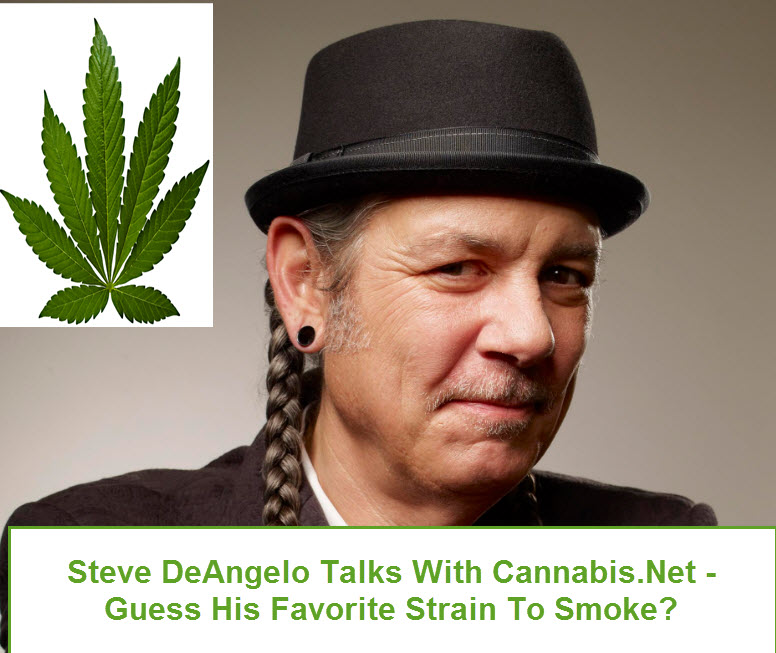
14:30 Curt: Wow.
14:31 Steve: And we see a similar outflow from the dispensary. Those months are always our lowest sales months. Always. And that's true across the entire industry. So, if you get into a situation where you've got a tax increase that's gonna be a tax increase of more than about 20 to 25% on the existing retail price of cannabis in dispensaries, my prediction is that you see an outflow back to the illicit market. And you make it a lot more difficult for that transition to happen. So the classic example of this was Washington state, where legislators initially put a 25% tax on each step of the supply chain. So you had this massive, massive increase. And people were trying to sell ounces of cannabis in Washington state for $600, $700, $800 an ounce. Surprise, surprise, nobody was buying. And where, at one point shortly after all the licenses were issued in Washington, people had been selling them for two, three, four, five, $6 million, they'd been selling off these licenses. And now, people were calling me up, they wanted to give them to me. They're like, "Curt, I've got this shop here. It's not doing so well. And I borrowed $150,000 to get it open, I need to pay that person back. I'd give it to you, if you can just take it over."
15:57 Steve: So over-taxation, the whole concept of sin tax being applied to cannabis, is really dangerous. What we don't want to do is discourage the use of cannabis. Our cannabis is not like a harm to be tolerated, some kind of small harm to be tolerated. It's this huge benefit and its use should be promoted. We know now, that in the first 20 medical cannabis states, the rate of fatal opioid overdose has dropped by 25%. And we know the number of lives that were saved. There's 17,000 lives that were not lost because of that. So the idea that you make a substance that is actually a life-saving substance into some type of sin tax item, and you discourage people from using it by raising the price, is... It's insanity. It's crazy. It kills people.
16:53 Curt: Ah, I never knew the story of the Emerald Triangle coming back, the San Francisco in that time of year. That's a great nugget that, no pun intended, that... That's a really interesting little fact within the industry. On the taxation front and political front, what's your gut feeling on the federal level, with President Obama leaving? Will he do something on the way out? Will the next president keep it as a chip of goodwill? What's your gut feeling as... Federally, what's gonna happen?
17:21 Steve: We're seeing a lot of noise coming out of the DEA now. Several leaks have come out of the DEA, to the effect that they're going to be issuing a new statement on the scheduling of cannabis before the end of August. If it's a new statement, it's pretty hard for me to imagine that they would not be rescheduling, at least to Schedule II. So I think that there's a better chance of that happening than I've ever seen before, but we don't know whether it will happen or not. My general view is that the cork is out of this bottle. The train has left the station. It's not going back in. And even if we have a Donald Trump victory, I think that there are enough people in the Republican Party who have already taken an explicit stage rights position that while Trump quite likely will slow or even entirely stop progress at the federal level, I don't seem him attempting to roll back the progress that we've made at this stage.
18:33 Curt: Okay.
18:34 Steve: So I still see the feds respecting, more or less respecting state cannabis laws. If Clinton gets in, I think that what we'll see is more or less a policy, of benign neglect. I think that she will not do anything to slow down reform efforts, but I don't think that her administration is gonna do anything to, aggressively push it forward either. Again at the end of the day, I think that what we're looking for the next four years certainly is that the majority of reform efforts are gonna be happening at the state level. I think that it's unlikely that either one of these two presidential administrations is going to aggressively embrace reform in the first term.
19:22 Curt: Excellent. Well hopefully maybe Gary Johnson sneaks in those debates as well and can further the movement with his position on cannabis and legalization.
19:32 Steve: Yeah, unfortunately it's still looking like he's gonna have to sneak in isn't it?
19:36 Curt: He'll have to buy a ticket like the rest of us unfortunately right?
19:38 Steve: Right.
19:40 Curt: So your reputation obviously precedes you as a tremendous care giver and your patients love you and your work in ArcView has really moved the industry forward. If I go a hundred years from now and we're looking back at Curt DeAngelo's reputation, what do you wanna be remembered for? What do you want the first three sentences to be?
20:03 Steve: I wanna be remembered as a guy who insisted that we build not just a new industry, but a new kind of industry. One that incorporates the lessons that this plant teaches us into our business models.
20:19 Curt: Excellent. Alright. Well I have to also ask you, a personal question. You're on a deserted island, you can only take two cannabis strains with you the rest of your life. What do you choose?
20:32 Steve: Grand Daddy Purple and Neville's Original Haze.
20:35 Curt: Wow! Excellent. Any stories behind either one? Is it historical? Go ahead.
20:40 Steve: Yeah. Well Neville's is absolutely historical. I was fortunate to meet Neville way, way, way back in the day in the early '90s in Amsterdam. And the Haze that he developed is just instantly one of the most noticeable strains, recognizable strains of Cannabis, that you will ever encounter. It's just got this incredible combination, a really biting, almost acrid kind of flavor with a soaring, soaring really cerebral effect that just always made me feel super inspired and super energized. That was the 1990's and the 1990's were, at least until 1996 were not a great time for cannabis reform. It was a time when we are seeing more re-criminalization measures than decriminalization measures and the Clintons were in the middle of tripling the size of the federal prison system. So that Haze and the inspiration and the energy it brought was something that was really present for us when we were building Hemp Tour and building up the head of steam which eventually allowed us to pass prop 215 in California. So those were the glory days of Haze and that's when we sorta kicked off this movement too. So there's some historical correlation there.
22:15 Steve: And then Grand Daddy Purple is like you can't... I love Oakland. Oakland is the city of my dreams and it's a place that allowed me to be free and do the things that I've always wanted to do and gave me a position of honor and respect and Purple is what Oakland is all about. We developed the Purple strains here and there is nothing that's quite as soothing for me after a hard day of fighting the feds or dealing with the IRS or the Department of Justice of sitting down with some beautiful, candy sweet Grand Daddy Purple and letting it soothe my, stress away.
23:01 Curt: Yes. Walked right into the next question. What is your preferred method of consumption these days, kinda where you at.
23:08 Steve: So I'll typically use Prana capsules during the day. So, I generally start the day with 100mg of THC and 100mg of THCA and repeat that dose in the middle of the day and finish off with a couple hundred milligrams of THC in the evening. And then when I do inhale, I'm either hitting a vape pen which they generally, to be honest with you, don't give me much satisfaction. So it's sort of if I'm stuck in a conference or a court room or something like that then I'll hit the vape pen. Oh yeah, I've hit the vape pen inside city council meetings even. They're quite convenient, but ultimately not terribly satisfying. So, I also have a couple of dab rigs. One that I heat up with a torch and then I have the vape exhale. On most days, it'll be when I get home in the evening that I'll hit those dabs although on some days like this beautiful, sunny Friday, I hit it in the morning.
24:11 Curt: Wow. Excellent. It sounds great out there. I'm glad it's turning in such a great day and a great weekend for you. Well, I won't keep you all day. Curious, you're obviously one of the industry... Mount Rushmore. What do you know that three years from now, Steve from Cannabis.net and Curt sit down for another interview. What are you gonna tell me? "I knew this was gonna happen," or "I saw this coming."
24:37 Steve: I saw this coming. You are going to see a... More and more sun grown cannabis. Right now, the majority of the cannabis that's produced and consumed in the United States is grown under high intensity lamps with a horrifying carbon footprint. Takes about 200 pounds of coal to produce the electricity needed to grow one pound of cannabis indoors. And drive 23 miles down the road on the amount of canna... On the amount of energy it takes to produce one joint grown indoors so I think that the... And then there's fantastic cost associated with that so I think for both the environmental reasons and cost factors that you're going to see a lot of cannabis production moving from indoors to under the sun, particularly my cannabis that's gonna be grown for extraction and for infused products.
25:29 Curt: Alright. Well, that's excellent to know. Well, Steve, I appreciate your time. I don't wanna keep you on this holiday weekend. It sounds like you've already started the Independence weekend. I... Cannabis.net users will enjoy this interview and I appreciate, again, the time and taking our call and giving us this fantastic information.
25:48 Steve: My pleasure, Curt. Very good luck with your venture and may all your cannabis dreams come true.
25:54 Curt: Alright, thank you.
If you are on a laptop or the Slideshare App, you can also listen to this interview by clicking the Slideshare screen below.
Other articles you may enjoy...
STEVE DEANGELO GOES OFF ON HIPPIE CULTURE, LISTEN HERE.
OR..
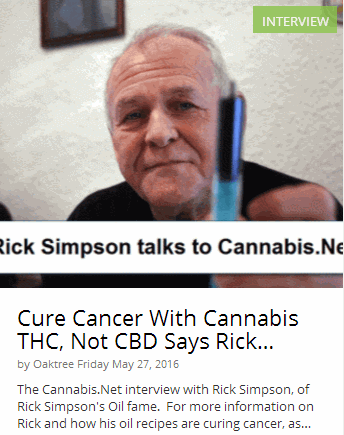
CURE CANCER WITH CANNABIS THC, NOT CBD SAYS RICK SIMPSON, CLICK HERE TO READ

